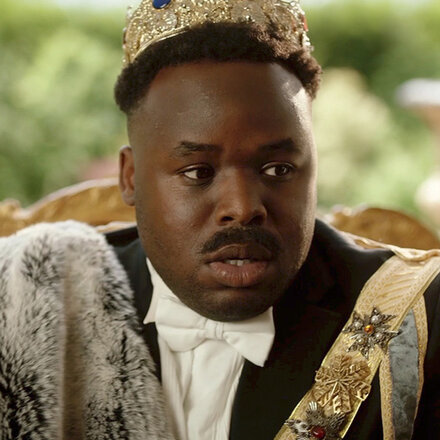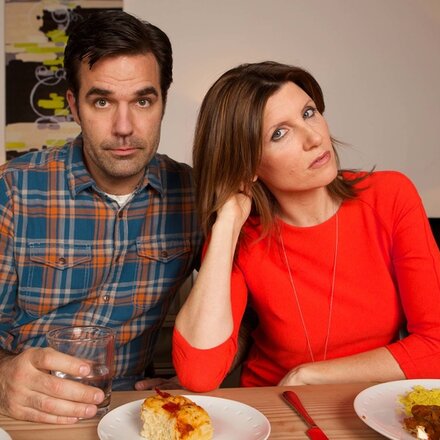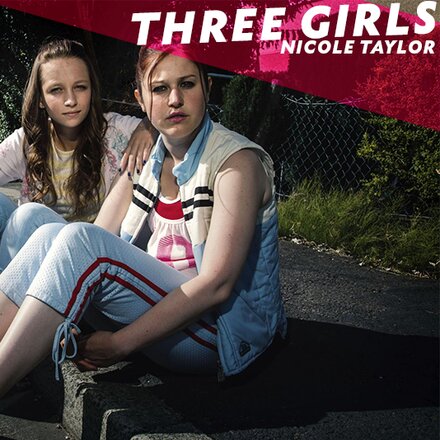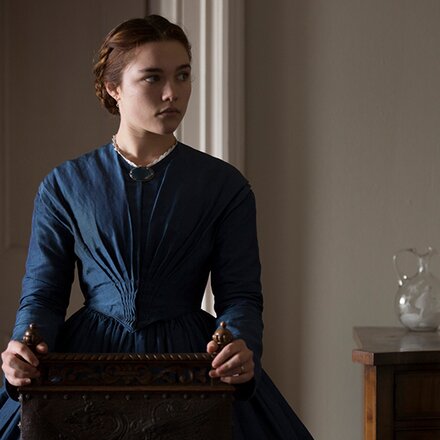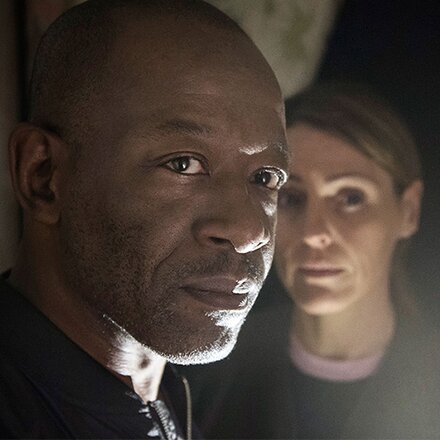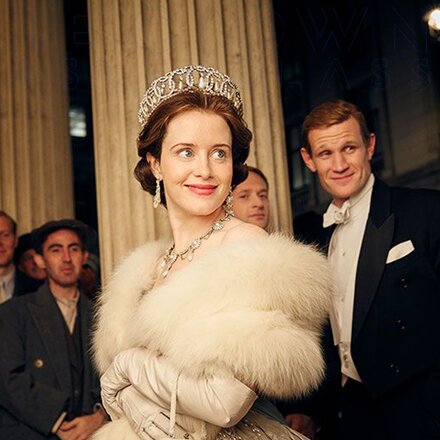Gentlemen – welcome to The Guru! Before we get to the present day – can we briefly look back at the steps you took to becoming BAFTA winners? When did you start writing? What had you made before Run?
Marlon: Well we hadn’t done anything really, only a handful of spec scripts and a very early version of Run – when it was meant to be an online series. Daniel used to co-direct with Jonathan Pearson (co-creator of Run and director of episodes 3 & 4) and they had done a few low-budget music promos, an online commercial and two short films together. But in terms of actual writing, neither of us had done anything of real note outside of the early version of Run.
Daniel: Marlon and I have been bouncing scripts back and forth between us since we were 16 (at Sixth Form College) and so that was a kind of training ground if you like. They were mostly bad but we learned form each other and that formed the basis of where we are now. Then around age 25, we got better (it took that long!) and we started sending out spec scripts.
Run was initially going to be an internet series and you financed the pilot yourselves. That must have been a pretty big decision – what made you decide to go for it? How did you pull the money together?
Daniel: Well we had tried the spec script route – writing our own ideas and cold calling agents and production companies – but no one was biting. It was hard to stand out in the crowd.
At that time HD camera technology was becoming more assessable. Webisodes and the rise of YouTube had just begun and anyone could upload content and have their voice heard. That was exactly what we needed and so around 2007 Jonathan Pearson said “let’s just do it.” So me, Marlon and Jonathan came up with the first concept of Run.
Marlon and I went off and wrote it. Our friend and producer Adam Dolman put up the lion share of the production budget (thank god as we would not have been able to do it all on our own) and we made up the rest.
Marlon: The way we saw it, we were investing in our future so it would be money well spent. We pulled the money together through working regular jobs and just saved really. I was working for Lambeth council at the time and Daniel was working for Addison Lee in sales and customer services, so the money was tight. But we made it work.
And how did it then get picked up for Channel 4? Pure luck? Or did you pursue contacts there in order to get it seen by the right people?
Marlon: I’d known the producer Jaimie D’Cruz for years and he’d always wanted to get into TV drama. He was (and still is) a prolific documentary filmmaker and had just been Oscar nominated for the Banksy doc Exit Through the Gift Shop. So he had a lot of heat and traction around him. But instead of more docs, he wanted to use it to get into TV drama and fiction films.
He watched and loved our initial concept of Run and thought putting it up online was a waste of time. He felt it was good enough for TV – Channel 4 in particular.
Daniel: You have to remember that at this time, Netflix and the online TV phenomenon had not started yet. So people’s idea of online drama was that it was very cheap and badly acted. Or at best were spin-offs of successful TV shows. He didn’t want us to be lumped into that category. But it is funny how the tables have turned. Now online TV dramas are on a par and in some cases better than traditional TV dramas.
Marlon: So Jaimie got us in with Channel 4. They got it and loved it and then he shepherded the project all the way to the finish line.
You won the BAFTA for Breakthrough Talent at the Television Craft Awards last year – what was that like and has it opened doors for you since?
Daniel: We had the wind knocked out of us when our names were read out and fumbled our way through a thank you speech (where we confused the actors names with the characters names and forgot to thank our parents!). So in short, it was amazing. We never ever thought we’d win an RTS award let alone a BAFTA.
We keep telling people it still hasn’t quite sunk in yet because it really hasn’t. It was all one big whirlwind experience that was over as quickly as it started. But despite our complete shock, we loved every second of it.
Marlon: It really has opened doors for us. After the BAFTAs we met a ton of really talented people who wanted to work with us. People whose work we really admired too. Thanks to the BAFTA we’re working on so many great new projects. Without it, I’m not sure we would have been given a shot on many of them. So yes, it’s been out of this world and afforded us the chance to really become the writers we’ve always wanted to be.
Can you shed a bit of light on your writing process. Are you the kings of procrastinating or do you have a strict schedule?
Marlon: There must be something wrong with you if you're a writer and you don't procrastinate a little bit! Only kidding. In all seriousness we do have quite a strict process. Whether we're working on a feature film or a TV series we always start by working closely together on story, structure, and character. From those meetings we'll write a detailed treatment of the series/film. Once we have put together the treatment we then go our separate ways and start writing.
Daniel: Most of the time we're writing multiple episodes of a show. So for instance, on a four-part show Marlon will take two episodes and I will take two episodes. We'll write the scripts separately and then once they're finished we'll redraft each other’s work. Once we've redrafted each other's work we will come back together and give the scripts one last pass, a final draft. It's a process that's constantly evolving, but it's worked for us so far!
What’s next for you both?
Marlon: We're writing two episodes of Anthony Horowitz's new crime drama New Blood for the BBC and we're also working on a sci-fi drama for Vertigo Films called Monsters, a television series we've created ourselves which is based on Gareth Edward's original first film of the same name. Also a revenge thriller with Film 4 and Jonathan Pearson, called My Brother's Keeper.
Daniel: We're also adapting a book for television called The Gospel According to Cane by the novelist Courttia Newland, it's a psychological drama for Cowboy Films and we’re also working on an original idea, a comedy drama for the BBC and Kudos called Pawn.
And finally – what one piece of advice would you give to your 16 year old self?
Marlon: I would probably tell myself to get out of my comfort zone and take more risks. To not be afraid to show people my work for fear of rejection or lack of confidence. As a 16 year old I truly believed that the first draft was the only draft that mattered and if I didn't think I'd written perfection I'd bin the script without hesitation. I'd love to tell myself to hold off on the pressure and give yourself a break!
Daniel: Two things – first, to write more. You can ever have enough material. Keep writing even if it’s terrible. Second - maybe to get into theatre more. I was obsessed with movies and never really gave theatre a chance. As a writer it‘s one of the best place to be as you have so much control and there are more avenues open to young writers than TV and film.
The British Academy Television Craft Awards in 2015 take place on Sunday 26 April from 19 00. Follow @BAFTA for all the latest updates and winner announcements.

